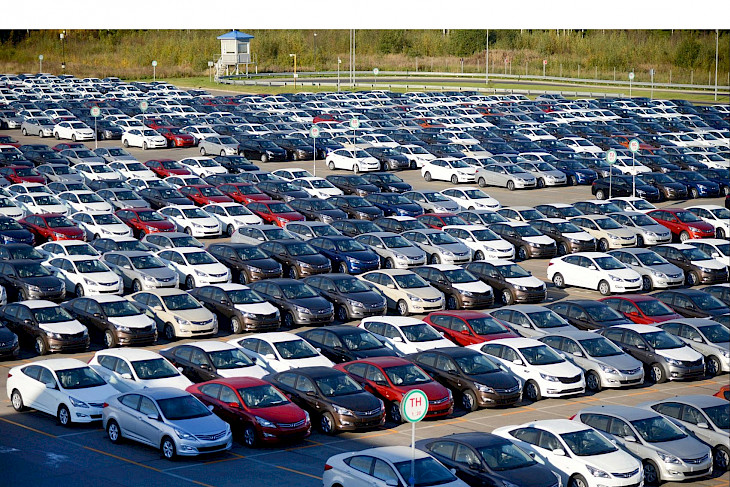In the first three months of 2024, vehicle registration fees in Kyrgyzstan, according to statistics from the country's Ministry of Finance, reached 438.7 million soms - about $5 mln. This is significantly higher compared to the same period last year, when 238.7 million soms were collected, representing an increase of 84%, reports Akchabar.
The sharp increase in registrations indicates that large batches of vehicles continue to be imported into the country. In just three months, 50.4 thousand vehicles were imported. Compared to the same period in 2023, this is almost 2.5 times more.
However, despite the increase in imports at the beginning of 2024, exports began to decline, with Russia remaining the main buyer. From January to March 2023, Kyrgyzstan exported 936 passenger cars to Russia, which is 7.3 times more compared to the same period in 2022. Sales in the first quarter of this year decreased by almost 70% compared to last year.
According to the state enterprise "UNAA," which registers vehicles, Kyrgyzstan exported 37,689 cars. According to Russian analysts, almost all of this volume was sent to Russia. Thus, Kyrgyzstan secured second place in terms of vehicle supplies to Russia with a market share of 17.4%, while China holds the first place with a market share of 76.1%.
It will be difficult for Kyrgyzstan to replicate its success in supplying vehicles to the Russian market this year. The fact is that starting April 1, an increased recycling fee on cars for all EAEU countries, including our republic, came into effect. This raises the question of what our businessmen intend to do with the imported cars.
It is already clear that the recycling fee will negatively impact Kyrgyz businesses that actively resell cars from China and South Korea to Russia. According to economic expert Iskender Sharseev, due to the new requirements, car exports from Kyrgyzstan to Russia may decrease to a few hundred units per year.
At the same time, China, as the main supplier of cars to Kyrgyzstan, may take advantage of BRICS conditions and conclude agreements on duty-free trade with Russia, eliminating intermediaries.
"The increase in car registrations in Kyrgyzstan in the first quarter of the year was probably an attempt to bypass the increased recycling fee. After its sharp increase, demand for imported cars may decrease. This is due to the rise in the overall cost of acquiring cars, making them less affordable for consumers in Russia," commented economist Iskender Sharseev.
According to him, cars imported before the recycling fee increase may become more expensive in the secondary market, as they were acquired at a lower cost.
"This could lead to a temporary increase in prices for used cars. But in the long term, the market will adapt to the new conditions, possibly shifting demand towards more affordable or economical cars," the expert continued.
As for the fate of the cars imported before the recycling fee increase, in Sharseev's opinion, they will either be sold on the domestic market at current prices or exported to countries other than Russia.
CentralasianLIGHT.org
May 17, 2024

